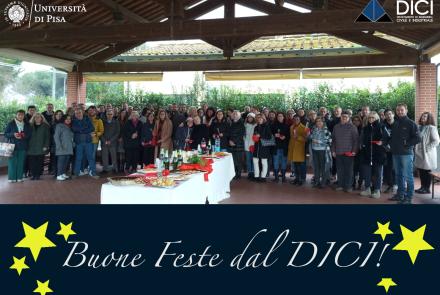AULA MAGNA PACINOTTI
Scuola di Ingegneria
h 10:00
ABSTRACT
Developing high-performance energy storage devices are important for portable electronics, vehicle electrification and smart grid while developing techniques for electrochemical monitoring that offer higher spatial and temporal resolution would open up new ways to study electrochemical interfaces and reaction kinetics for further developing novel energy storage devices. In this presentation, we will explain how to identify key challenges/problems and propose innovative solutions in electrochemical energy storage systems by rational designing and engineering devices and platforms capable of simulating, monitoring and regulating complex electrochemical processes. For example, the development of Li-CO2 batteries (LCBs) for energy and environmental solutions is impeded by catalyst inefficiency and reaction uncertainties. To combat this, we propose an on-chip electrochemical testing platform for effective catalyst screening and in-situ product analysis in LCBs. With optimized catalysts, LCBs show low overpotential (~0.55 V) and proven reversibility, as confirmed by in-situ Raman, atomic force microscopy, and ab initio calculations. High performance LCB coin and pouch cells were manufactured to demonstrate this platform's practical application. Additionally, we address lithium dendrite issues in solid-state Li batteries by introducing electronic rectifying interphase on solid-state electrolytes. This interphase, featuring a p-n junction and Li-wetting layer, prevents electron infiltration during charging and enhances cycle stability over 2000 cycles, verified through comprehensive on-chip platform tests and visualized via X-ray computed tomography. These advancements not only contribute to LCBs and solid- state Li metal batteries but also lay the foundation for diverse applications like metal-air batteries,electrocatalysis, fuel cells, and photoelectrochemical systems, paving the way for broader scientific and technological explorations.
BIO
Dr Yunlong Zhao is an Associate Professor at the Dyson School of Design Engineering, Imperial College London, leading the Electrochemical and Bioelectronic Interface Group. He also holds a joint appointment at the National Physical Laboratory (UK) as a Senior Scientist. Dr Zhao gained highly multidisciplinary research experience in material science, electrochemistry, electrophysiology, electronic engineering, biomedical engineering and nano-bio interface. He has developed a series of novel energy storage devices, sensors, bioelectronics, and their integration into 2D on-chip and 3D soft systems for the in-depth studies of electrochemical energy storage and electrophysiology, with over 90 publications published in peer reviewed journals such as Nature, Nature Nanotechnology, Nature Materials, Nature Communications, Nature Reviews Materials, Energy & Environmental Science, etc. Due to his academic contributions, Dr Zhao has received numerous prestigious awards, e.g., the Second- Class Prize of State Natural Science Award, etc. His current research interests include Lab-on-a-chip and implantable devices for electrochemical and physiological interrogation, Advanced electrochemical energy storage technologies for Sustainability and Net Zero, Wearable and implantable bioelectronics for Healthcare and the Human-Machine Interface, and Micro-power sources and bioelectronics integrated 3D soft system.






